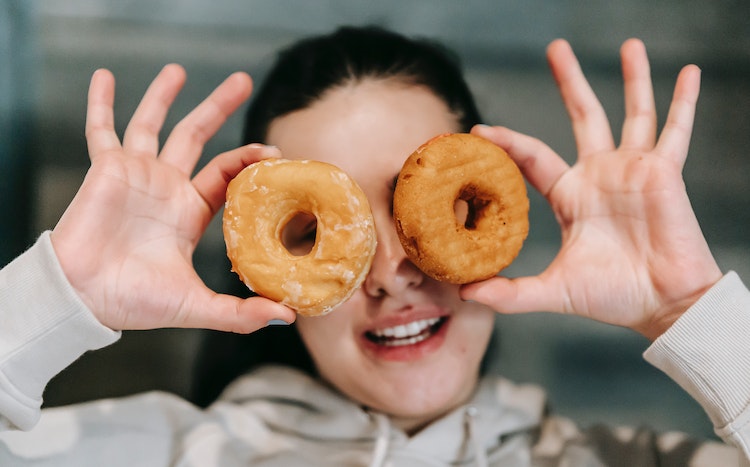 Cravings are a common symptom of marijuana withdrawal. Regular marijuana use affects the reward pathways in the brain and conditions them to expect the dopamine rush that comes from substance use. When you’re newly sober, strong urges to use are your body’s way of trying to keep its dopamine levels in balance.
Cravings are a common symptom of marijuana withdrawal. Regular marijuana use affects the reward pathways in the brain and conditions them to expect the dopamine rush that comes from substance use. When you’re newly sober, strong urges to use are your body’s way of trying to keep its dopamine levels in balance.
Cravings for marijuana can vary in intensity and duration, ranging from mild cravings that subside in a few minutes to more severe cravings that last several hours or days. They are often accompanied by other withdrawal symptoms, such as headaches, anxiety, restlessness, stomach pain, nausea, and trouble sleeping. However, your cravings will gradually subside over time as your body adjusts to functioning without marijuana use and you find healthier ways to raise your dopamine levels.
8 Tips to Help You Cope with Cravings During Recovery
From mindfulness to taking control of one’s environment and getting creative, a variety of methods can be used to cope with cravings and progress toward recovery from a marijuana use disorder. For example:
- Change your perspective. Cravings are not an enemy that needs to be fought and conquered. They are a normal part of the recovery process and a sign that your body is in need of support. Cravings should not be viewed as a sign that you’re “not cut out for recovery” or that you lack willpower.
- Take control of your environment. Staying away from people, places, and situations that are known to trigger your cravings is critical to your success in recovery. This means avoiding visits to friends who still use marijuana and refraining from entering certain areas known for drug use. Strive to create an environment that helps you stop most cravings before they start.
- Exercise. Staying physically active is one of the best ways to deal with cravings while you’re in treatment for a marijuana use disorder. Exercise helps to reduce stress and anxiety. It also releases endorphins that help enhance mood and improve energy levels. Look for alternative ways of working physical activity into your day if traditional sports aren’t your thing. For example, dancing to your favorite music is a wonderful way to take your mind off cravings.
- Get creative. Creative pursuits like drawing, painting, or writing can be powerful tools for dealing with cravings. Expressing your thoughts and feelings through art can help reframe the experience and provide insight into how to manage your cravings healthily.
- Find a distraction. Cravings are often short-lived, so looking for something else to focus on instead of using marijuana can help you stay strong. This could mean playing with your pet, watching a movie, playing a video game, or even ticking some household chores off your to-do list.
- Practice mindfulness. The term mindfulness refers to the practice of being present in the moment and accepting whatever thoughts, emotions, or sensations arise. Urge surfing, a concept popularized by psychologist Alan Marlatt, is a popular mindfulness used by people in recovery to help manage their cravings for drugs and alcohol.
- Remind yourself of your motivation for recovery. When your cravings feel overwhelming, think about all you’ve accomplished so far in your recovery and why you decided to seek addiction treatment. Marijuana’s effect on brain function is significant, and every day you remain sober brings you closer to the healthy, happy future you deserve.
- Ask for help. If you’re struggling to manage your cravings, don’t be afraid to reach out to your sober support network. Talking with people you trust can reduce feelings of isolation, help you stay accountable, and give you new ideas for coping with marijuana cravings in a healthy fashion.
Get the Support You Need to Overcome Your Marijuana Cravings
Marijuana cravings do not always lead to relapse; they can be managed with strategies such as mindfulness and self-care. It takes time and practice to learn how to cope with your cravings effectively, but it is possible with perseverance and support.
At St. Joseph Institute for Addiction, we provide a full continuum of care for men and women with substance use disorders. Our non-denominational faith-based Pennsylvania drug and alcohol addiction treatment center helps clients build the foundation for a lasting recovery by finding effective ways to manage their cravings, implementing wellness-focused lifestyle habits, and building stronger relationships with their loved ones. Contact us today to learn how we can help you overcome marijuana addiction and move towards a brighter future.
Looking for addiction treatment near Altoona, PA? To learn more about SJI Pennsylvania addiction rehab, and our programs, please contact us at (814) 228-8881.


